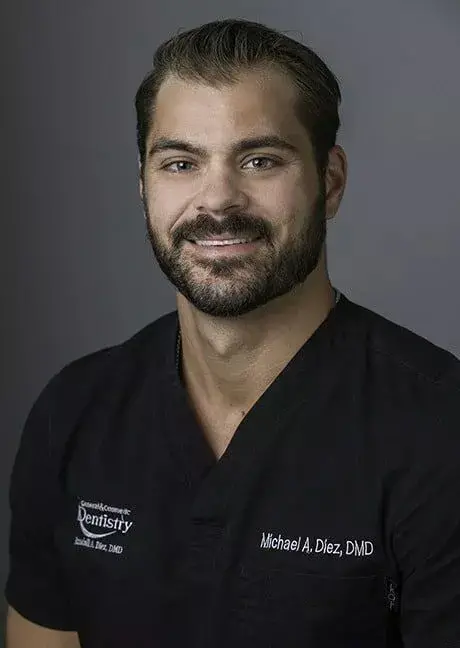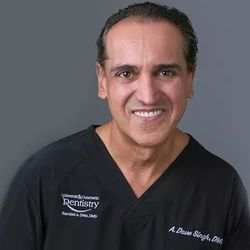Tooth troubles can strike at any moment. Whether it’s a nagging ache or sudden pain, dental issues often raise questions about the need for more serious interventions. One common solution that comes to mind is tooth extraction. Many people worry about this procedure and its implications, unsure of when it truly becomes necessary.
In bustling cities like Tampa, FL, where access to oral health care is abundant, understanding tooth extraction's role in maintaining overall dental health is crucial. This article will explore what tooth extraction entails and the circumstances under which it may be your best option. Let’s dive into the world of oral surgery and uncover how you can make informed decisions regarding your dental needs!
What is Tooth Extraction?
Tooth extraction is the process of removing a tooth from its socket in the jawbone. It can sound daunting, but it’s a common dental procedure performed by qualified professionals.
There are various reasons for extracting a tooth. Some may be damaged beyond repair due to decay or injury. Others might need removal if they’re impacted, such as wisdom teeth that don’t have enough room to grow properly.
In certain cases, crowded teeth may require extraction to make way for orthodontic treatment. This helps align your smile and improve overall dental health.
The procedure itself varies based on the tooth's condition and location in the mouth. Dentists use local anesthesia to ensure comfort during the process, allowing patients to feel relaxed while addressing their dental issues effectively.
Situations Where Tooth Extraction is Necessary
Tooth extraction may seem extreme, but it's often necessary for specific situations.
- Severe decay is one of the most common reasons. When a tooth has rotted beyond repair, removal can prevent infection from spreading.
- Another scenario arises with overcrowding. Sometimes, teeth grow awkwardly or too closely together, hindering proper alignment and function. Extracting one or more teeth can pave the way for braces and improve overall dental health.
- Impacted wisdom teeth frequently require extraction as well. These third molars can become trapped beneath the gums, leading to pain and potential damage to adjacent teeth.
- Infected roots also call for attention. If an infection reaches deep into the tooth's root, removing it may be essential to safeguard surrounding tissues.
- Trauma from accidents might necessitate extraction if a tooth is fractured beyond restoration or poses risks of further complications down the line.
The Importance of Consulting with a Dentist
Consulting with a dentist is crucial when considering tooth extraction. Dentists have the expertise to assess your oral health accurately. They can determine if extraction is indeed necessary or if other treatment options exist.
During your visit, they will conduct a thorough examination and may take X-rays to visualize any underlying issues. This process helps identify complications that could arise from an extraction procedure.
Additionally, discussing your symptoms openly allows the dentist to tailor recommendations specifically for you. It fosters a partnership in making informed decisions about your dental care.
Moreover, dentists can explain what to expect during and after the procedure. Understanding these aspects reduces anxiety and prepares you mentally for recovery.
Their guidance ensures you’re taking the right steps towards better oral health while minimizing risks associated with surgery in Tampa, FL.
Types of Tooth Extractions
Tooth extractions can be classified into two main types: simple and surgical.
- Simple extractions are often performed on visible teeth that are intact and easily accessible. A local anesthetic is applied to numb the area, allowing for a quick removal using specialized instruments.
- Surgical extractions involve more complexity. These may be necessary for teeth that have broken below the gum line or those impacted by surrounding bone or tissue. In this case, a dentist makes an incision in the gums to access the tooth.
- Each type of extraction requires careful consideration from your dental professional based on individual circumstances. Understanding which method will be used helps alleviate anxiety before the procedure begins.
Knowing about these types informs patients better about what to expect during their oral surgery experience in Tampa, FL.
Preparing for a Tooth Extraction Procedure
Preparing for a tooth extraction involves several important steps.
- First, schedule a consultation with your dentist. They will assess the situation and discuss any concerns you might have.
- Next, inform your dentist about your medical history. This includes medications you're taking and any allergies you may have. Transparency is key to ensuring a smooth procedure.
- On the day of the extraction, avoid eating or drinking beforehand if instructed to do so. This helps minimize potential complications during sedation or anesthesia.
- Wear comfortable clothing and arrange for someone to drive you home afterward. After all, recovery can be unpredictable depending on the complexity of the extraction.
- Gather supplies you'll need for post-procedure care at home—think ice packs, gauze pads, and over-the-counter pain relief medication. Being prepared makes everything feel more manageable when it’s time for oral surgery in Tampa, FL. Contact us to learn more.
Post-Extraction Care and Recovery Tips
After a tooth extraction, caring for the surgical site is crucial for a smooth recovery.
- Start by biting down gently on the gauze pad placed over the extraction area to control any bleeding. Change this pad as needed until the bleeding subsides.
- Avoid strenuous activities and heavy lifting for at least 24 hours post-surgery. Your body needs time to heal without added stress.
- Stick to soft foods like yogurt, mashed potatoes, or smoothies in the first few days. Stay hydrated, but steer clear of hot beverages that can irritate your gums.
- Maintain oral hygiene with caution; rinse gently with warm salt water after 24 hours to help reduce swelling and prevent infection. Don’t use straws or spit forcefully, as these actions might dislodge the blood clot essential for healing.
- Pay attention to any signs of complications, such as increased pain or unusual swelling, and contact your dentist if you have concerns.
Conclusion
Tooth extraction is a significant dental procedure that many people may face at some point in their lives. Understanding when it becomes necessary can help alleviate fear and anxiety surrounding the process. Whether due to decay, overcrowding, or trauma, knowing the reasons for extraction can empower you to make informed decisions about your oral health.
Consulting with an experienced dentist is crucial before undergoing any tooth removal. They will evaluate your specific situation and provide personalized advice on whether extraction is truly needed. Being well-informed allows patients to feel more confident in choosing their treatment options.
Different types of extractions exist, ranging from simple procedures involving visible teeth to complex surgeries requiring anesthesia and specialized techniques. Each case requires careful planning and consideration.
Preparing adequately for tooth extraction can ease the experience significantly. Follow your dentist's instructions regarding food intake, medications, and possible pre-operative steps for optimal results.
Post-extraction care should not be overlooked either; following appropriate recovery tips ensures minimal discomfort and promotes healing speedily.
Understanding these aspects makes navigating tooth extractions easier while maintaining good oral health practices throughout life’s challenges related to dental issues. If you're facing potential surgery or have concerns about your dental health in Tampa, FL, reach out to a trusted local professional who specializes in oral surgery today!
Our dentists are skilled and experienced in performing a wide range of oral surgery procedures and can ensure your comfort and the best outcomes. For the best dental care, visit General and Cosmetic Dentistry of Tampa at 5010 Gunn Hwy, Tampa 33624, or call (813) 960-5869.


